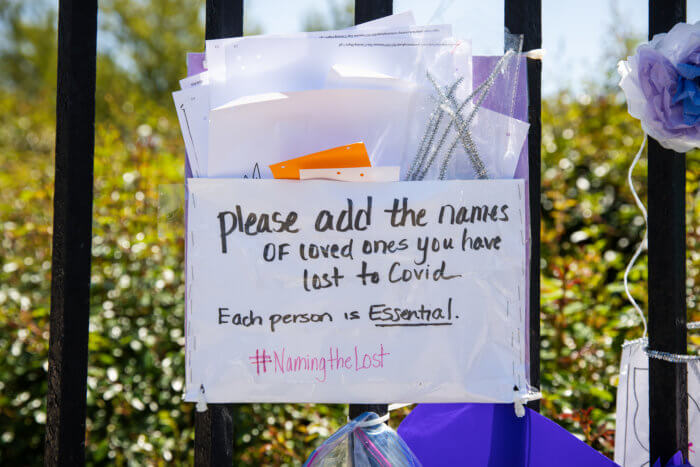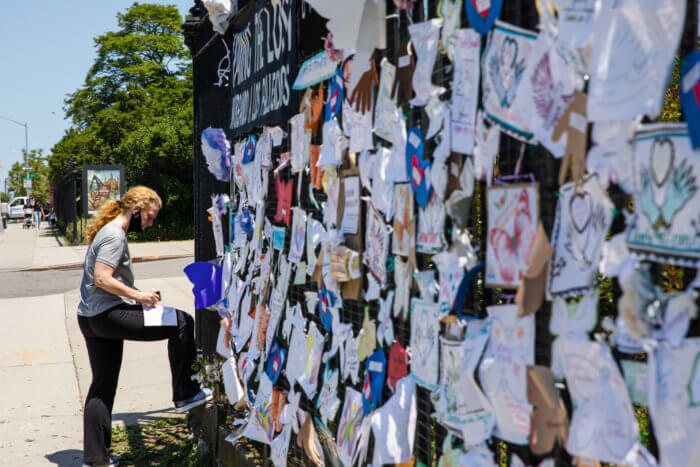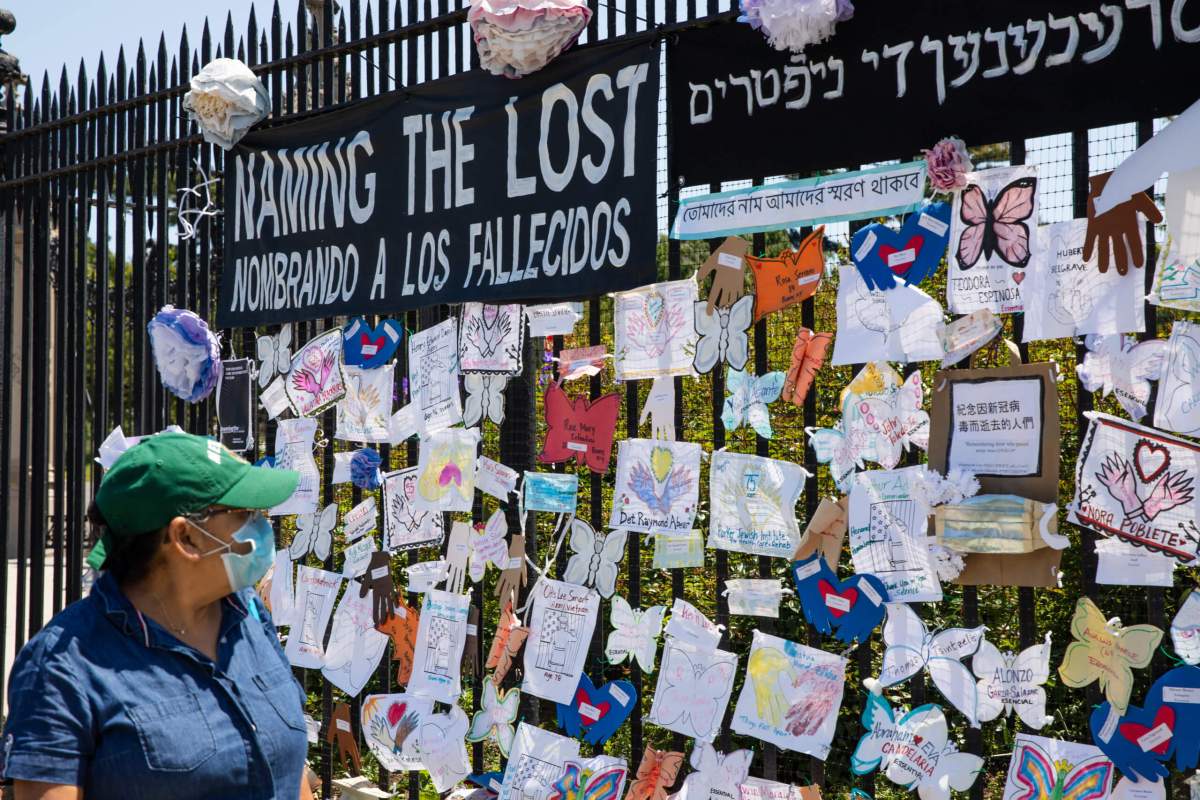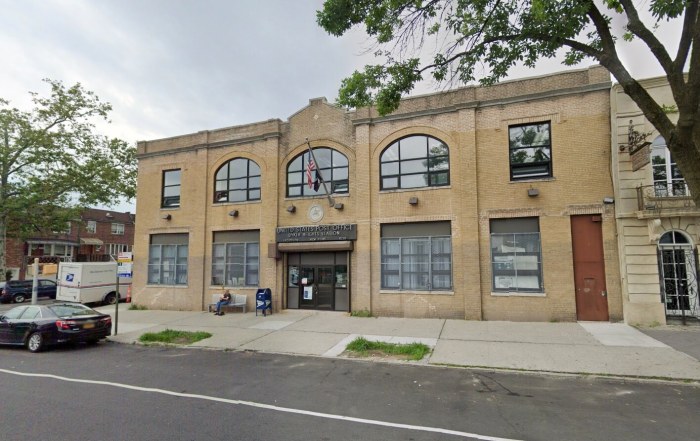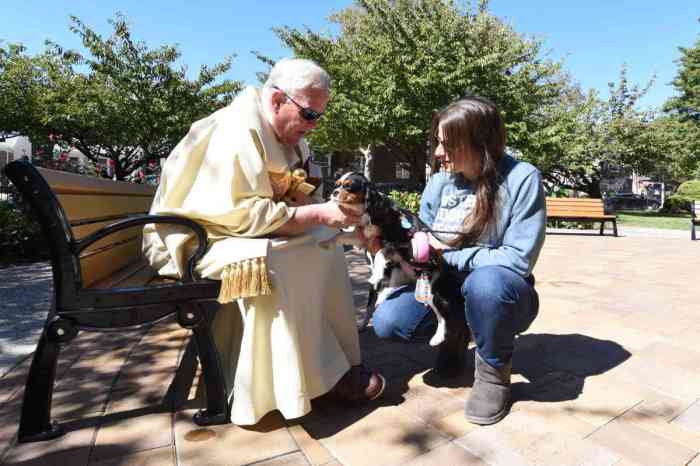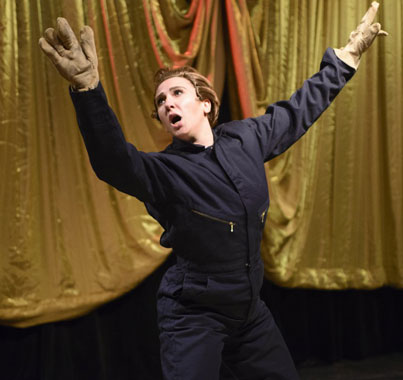A memorial wall outside Green-Wood cemetery invites families to post tributes to loved ones who have died from COVID-19 — and has already collected more than 100 names in one week, said the memorial’s creator.
“We wanted this to be as accessible as possible,” said Alexa Aviles, a local City Council candidate who set up the wall with a group of Sunset Parkers on May 20. “We left paper and markers, and every day there’s more names being added.”
The dedication, located on the gates of Green-Wood cemetery on Fifth Avenue near 25th Street, is one of several memorials citywide that are part of the Naming the Lost project — an initiative founded by artists and activists that aims to humanize COVID-19 victims who often appear as statistics, Aviles said.
“A couple of organizers and artists all over the city have been coming together and sharing the unfortunate reality that there’s no space to collectively grieve and no acknowledgement of the people that we’ve lost over these last two months,” Aviles said. “I think there’s a lot of anger that there hasn’t been any acknowledgment that people are referred to as numbers and graphs.“
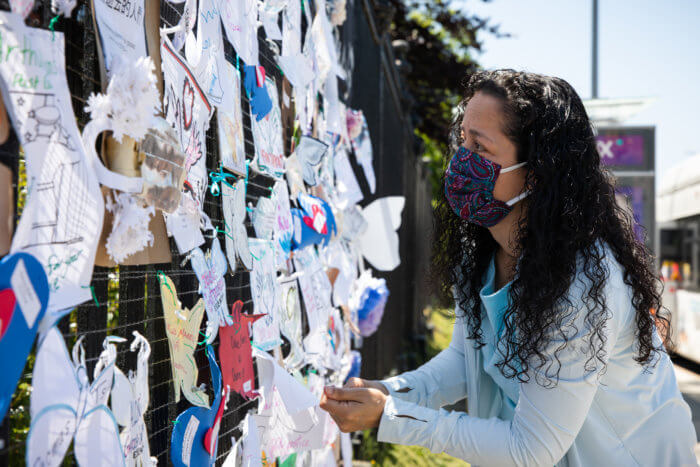
Aviles and several other Sunset Park residents set up the memorial wall in conjunction with a 24-hour online vigil Naming the Lost hosted on May 20 where mourners read the names of COVID-19 victims around the world. Since the reading, the wall has continued to gain traction as a memorial site for COVID-19 victims in Brooklyn — which has seen more coronavirus deaths than any other county in the country.
The wall features banners that say “Naming the Lost” in six languages — English, Spanish, Mandarin, Arabic, Hebrew, and Bengali — as well as stickers that say “essential” on many of the names posted to the wall. The stickers underscore the essential nature of every COVID-19 victim, Aviles explained.
“We wanted to convey with the memorial that … they were all essential, no one was dispensable,” she said.
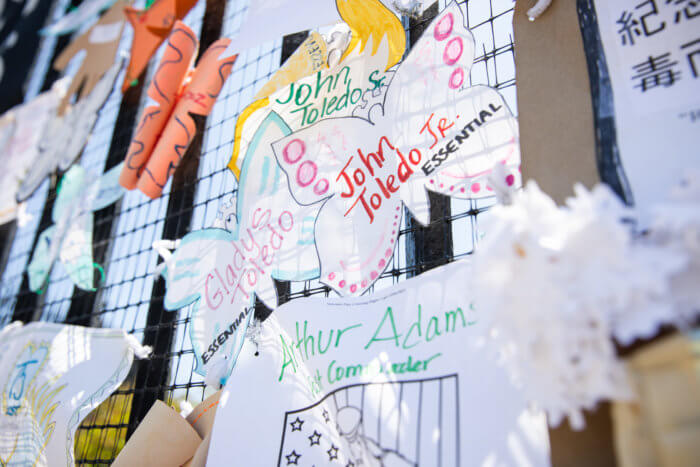
Like other Naming the Lost memorials, the wall displays colorful paper butterflies, which symbolize the soul, and cutouts of paper hands, which represent how many families could not be with COVID-19 victims when they died.
The wall also features a “Joss mask” at its center — a face mask made out of a golden paper traditionally burned in Chinese culture to honor ancestors.
“It’s important for the organizers to remember the people who died in China and to relay a message of solidarity with our Asian brothers and sisters who have experienced racism because of coronavirus,” Aviles said.
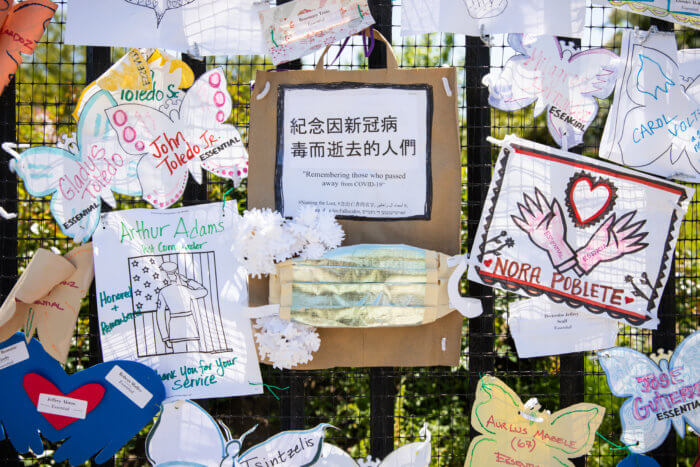
Aviles also plans to add netting to the gate so that locals can continue posting more names, and says she will continue maintaining the memorial.
“We were able to cover it up for the first rain on Friday and Saturday,” she said, adding that she will continue covering it as long as people keep using it. “[There’s] a real need to collective grieve, acknowledge, and grieve.”
